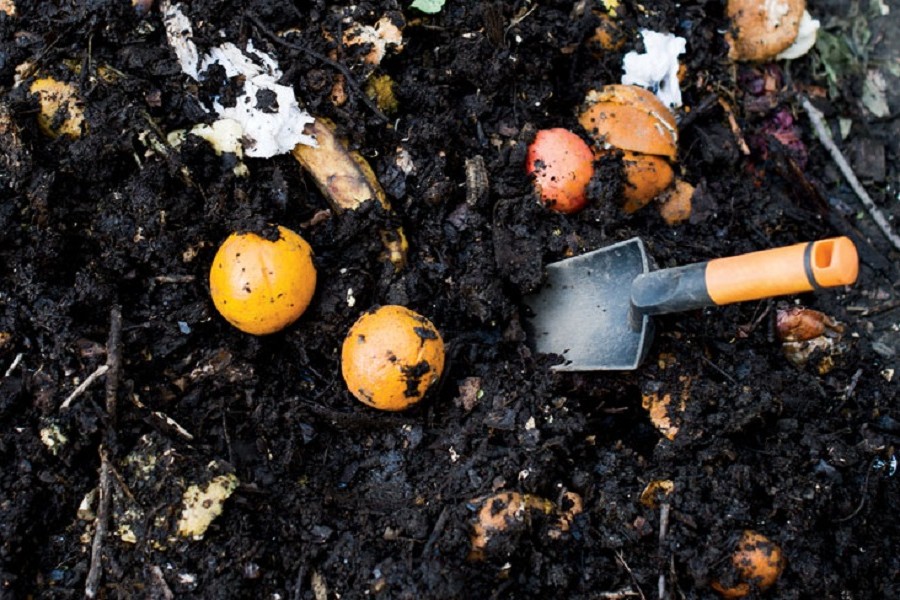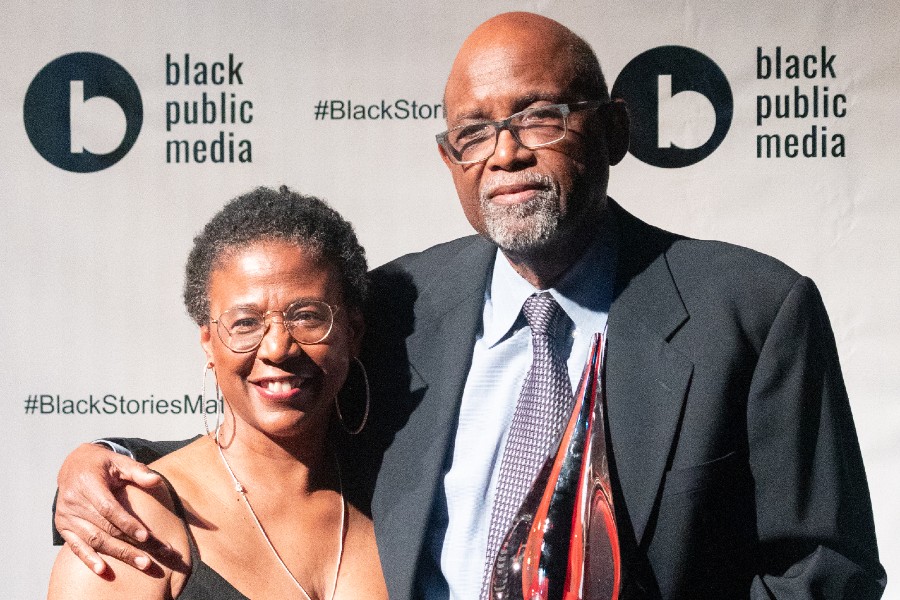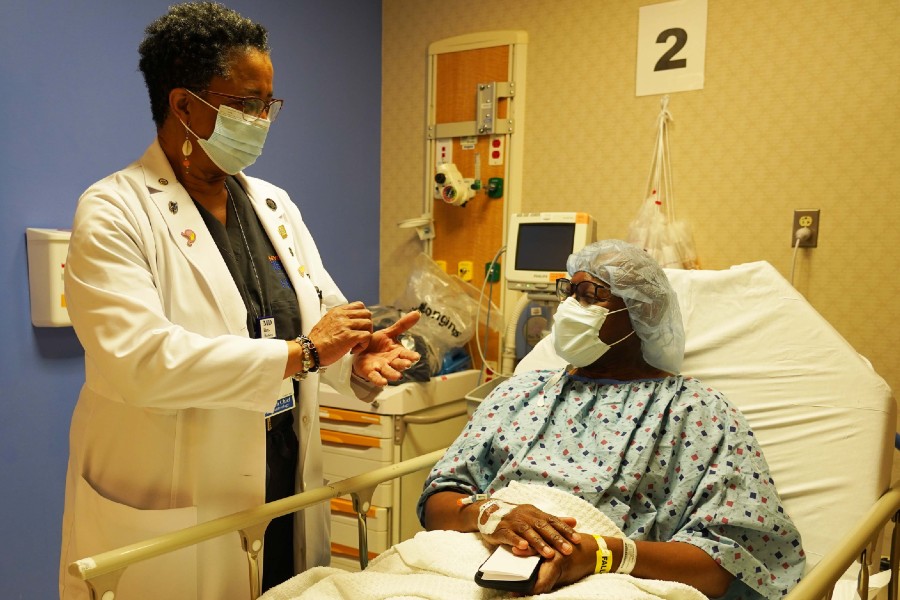
New York City Mayor Eric Adams and New York City Department of Sanitation (DSNY) Commissioner Jessica Tisch today announced a roadmap to implement the nation’s largest composting program, a long-delayed win for cleanliness and sustainability.
After highlighting the program in his State of the City address last week, Mayor Adams laid out details, over the coming 20 months, for weekly collection of compostable material that will become an automatic, guaranteed, free, year-round service for every single resident across all five boroughs.
While curbside composting programs have existed in New York City for the last decade, none have ever served more than approximately 40 percent of the city.
This will be the first-ever specific plan and commitment to reach 100 percent coverage citywide, providing residents with simple, universal weekly collection of leaf and yard waste, food scraps, and food-soiled paper products. It is also the first program designed as a service for “mass market” use by all New Yorkers.
The Adams administration developed an effective, cost-effective pilot plan for curbside composting that began in Queens on October 3, 2022. This program — designed to be the easiest-to-use, most efficient curbside composting program ever — exceeded expectations in Queens as it diverted three times the material at less than a third of the cost on average per district compared to old programs. This model will now be expanded citywide.
“Today, we are going where no one has gone before. By the end of 2024, every New York City resident will have access to clean, convenient, curbside compost pickup from the Department of Sanitation,” said Mayor Adams. “For more than two decades, past administrations have been working to achieve citywide composting — and today, I’m proud to announce we are getting it done. By reducing the food waste that we put into trash bags, our streets will look better, smell better, and best of all, will be dealing a blow to New York City’s number one enemy: rats.”
“For decades, New York City has been one of the nation’s largest takeout food offenders, sending billions of tons of food out of state, hundreds of miles away to be dumped in landfills,” said Deputy Mayor for Operations Meera Joshi. “Building on the commonsense approach used in the Queens organics pilot, today we are announcing the reversal of this costly and carbon-producing activity. Instead of creating more landfill, our food scraps will be separated, contained from rats, and turned into renewable energy, biosolids, and compost.”
“When I started at DSNY nine months ago, Mayor Adams asked me for the best kind of curbside composting program — one people would actually use,” said DSNY Commissioner Tisch. “The program we rolled out in Queens last year worked — eight districts in Queens diverted more material than Park Slope, and Jamaica and St. Albans diverted more material than the entire old seven-district legacy program combined! I’ll never forget the first time we looked at the numbers and said, ‘YAHTZEE: This is the model that can actually serve the entire city.’”
Full details on the 12.7 million pounds of compostable material diverted from landfill in the first three months of the Queens pilot program are available on DSNY’s website.
The new program is built on a number of efficiencies that drive costs down, including the use of dual-bin trucks and a right-sizing of the workforce to reduce overtime. The leaf-and-yard-waste-first approach was designed based on an analysis of successful programs in other cities, including Portland, San Francisco, Seattle, and Toronto.
Unlike past composting programs, there will be no sign-up required for this new program. Residents will simply set out anything from their kitchen or their garden in a separate bin on their recycling day and DSNY will pick up those materials to turn them into usable compost or clean, renewable energy. While DSNY will make its own Brown Bins available, this program also includes the flexibility for New Yorkers to use ANY bin of 55 gallons or less with a secure lid.
Service will begin on the following timeline:
- March 27, 2023: Service restarts in Queens following a brief winter pause and becomes year-round. There will be no further seasonal breaks in any borough.
- October 2, 2023: Service begins in Brooklyn.
- March 25, 2024: Service begins in Staten Island and the Bronx.
- October 7, 2024: Service comes to Manhattan, marking the first citywide curbside composting program ever.
As Manhattan will receive service last, Mayor Adams also announced that the borough will receive an additional 150 Smart Composting Bins this spring to help residents separate their compostable material. These orange bins are an example of a successful pilot scaling broadly. From an initial group of 25 in Astoria, Mayor Adams previously announced a plan to place 100 bins across all five boroughs, which, based on popularity, was later expanded to 250, in every part of the city. As of today, those bins have all been installed and are accessible 24 hours per day via a newly-designed app for iOS and Android called NYC Compost. The additional Manhattan bins announced today will bring the total number bins to 400.
New Smart Composting Bin service covers a number of traditionally underserved communities, including Bushwick, Bedford-Stuyvesant, Castle Hill, Harlem, Highbridge, the North Shore of Staten Island, Parkchester, the area around Queensbridge Houses, and Washington Heights. Across these communities, the bins have been greeted by enthusiastic usage and have diverted pristine compostable material from landfill. The additional 150 bins announced today will be placed in central business districts and residential sections of Manhattan.
Today’s announcement additionally comes on the heels of historic investments in other DSNY sustainability efforts by the Adams administration, nearly $31 million in further funding in Fiscal Year 2023 since last April. This funding includes investments in a number of exciting programs — not just curbside composting and the Smart Composting Bins, but a previously-announced expansion of school composting to every New York City public school by next school year, a comprehensive waste characterization study, and expanded funding for community composting.
Finally, today’s announcement includes a plan to thank the people of Queens for their role in making curbside composting a success. This spring, all Queens residents will be able to pick up 40-pound bags of New York City compost for use in their yards and gardens. A full schedule of giveback events will be mailed to Queens residents and posted on DSNY’s website. The department will conduct more compost giveback events in every borough as the program proceeds, where the material that residents put out for composting is given back to them the following year as usable soil.
“The expansion of the city’s compost program into all boroughs will lead to a higher quality of life for New Yorkers and pave the way to achieve zero waste by 2030. This Queens pilot proved that we can divert our compostable materials, and we look forward to a successful municipal composting program that is consistent and universal,” said New York City Comptroller Brad Lander.
“Thanks to the cooperation and enthusiastic participation of Queens residents, the boroughwide curbside composting program instituted here last October proved to be a massive success,” said Queens Borough President Donovan Richards Jr. “I am thrilled the program will be soon be instituted citywide. This is a great day for our city, and frankly for our entire planet, as we are taking a major step forward in our efforts to protect our environment and address the climate change crisis that has negatively impacted our borough for years.”
“Today’s announcement is a win for the environment, the city, and for Manhattan residents, who are finally going to have access to an automatic and guaranteed composting system that will result in cleaner streets, a more sustainable borough, and reduced waste sent to landfills,” said Manhattan Borough President Mark Levine. “The orange Smart Composting Bins have already proved extremely popular, showing how important it is that the city move quickly to expand composting across the borough. I’m excited to work with the mayor and local stakeholders to help make our borough more sustainable.”
“We are pleased with the mayor’s leadership and commitment to sustainability. The unveiling of the inclusive and cost-effective Curbside Composting Program is a massive win for New Yorkers and environmentalists alike,” said Bronx Borough President Vanessa Gibson. “The program will ensure that New Yorkers are equipped with the proper tools and resources to facilitate free year-round composting service. As the first-ever citywide composting program, I look forward to seeing its impact in traditionally underserved neighborhoods like Highbridge and Parkchester where carbon emissions are already high. This program will help us reduce landfill waste, control greenhouse gas emissions, and decrease pollution in our borough. I want to thank Mayor Adams and Commissioner Tisch for their labor and commitment to implementing a composting program that will benefit all New Yorkers.”
“Citywide curbside composting is a huge step toward a healthier environment and cleaner streets, but we can’t settle for anything less than a mandatory composting program across our five boroughs that truly transforms how we deal with waste at scale,” said Brooklyn Borough President Antonio Reynoso. “I’m grateful to Mayor Adams and DSNY Commissioner Tisch for getting us started, and I look forward to working together to carry this momentum into a fully realized and fully resourced composting effort.”
“New Yorkers want to be conscientious about their organic waste disposal, so I commend the mayor and Commissioner Tisch for harnessing the collective enthusiasm for composting and expanding organics collection to the entire city,” said New York City Councilmember Gale Brewer. “Curbside collection of organics is integral to achieving zero waste by 2030, as food waste comprises one third of the overall waste generated by New Yorkers. It reduces the population of rats and other pests by sorting food waste into its own secure container. I love my little brown bin, I put it out every Friday night.”
“This citywide composting program is an achievement every New Yorker can celebrate,” said New York City Council Majority Whip Selvena N. Brooks-Powers. “Composting reduces landfill usage and saves the city money. I commend the administration on its efforts to universalize access to composting and look forward to tracking and supporting the rollout of this program.”
“With Queens exceeding our city’s expectation for participation in weekly composting, I am excited that the rest of our outer boroughs get to join in the first-ever citywide composting program,” said New York City Councilmember Amanda Farias. “As the councilmember of District 18 it is great to see that Castle Hill is one of the communities that will receive the new smart composting bins. I look forward to seeing compost bins around my borough and district starting in March of 2024!”
“If there is one thing last year’s rollout has taught us, it is that Queens residents are enthusiastic about this composting program,” said New York City Councilmember James F. Gennaro, chair, Committee on Environmental Protection. “I applaud Mayor Eric Adams and DSNY Commissioner Tisch for relaunching this program, which will not only improve sustainability, but will also improve cleanliness across the city.”
“As the proud lead sponsor of Intro 244, legislation to mandate a citywide residential composting program, I am thrilled that the Mayor has committed to bringing composting to all five boroughs. We know that a third of all waste our city sends to landfills comes from organic waste, meaning a successful composting program would dramatically reduce New York City’s carbon footprint,” said New York City Councilmember Shahana Hanif. “I look forward to working with the mayor to enact Intro 244 and operationalize this program. Our city must make a firm commitment to citywide mandatory residential organics collection if we’re to meet our critical zero waste goals.”
“Mayor Adams and Commissioner Tisch’s initiative to reduce food waste is a great step forward for our city,” said New York City Councilmember Robert Holden. “Not only is it environmentally conscious, but it is also cost-effective, making it a win-win situation for all New Yorkers. I applaud their efforts and look forward to helping the program succeed.”
“Expanding composting has been a top request from Manhattan residents for many years and a top priority of the City Council, which has put together a comprehensive legislative package on this,” said New York City Councilmember Julie Menin. “The successful rollout of borough-wide curbside composting in Queens has shown that the people of New York City want composting and that the demand is there. I look forward to Mayor Adams and the City Council taking this valuable service citywide to make New York City cleaner and keep scraps out of landfills.”
“New Yorkers have been advocating and waiting for a citywide curbside organics program, and I look forward to working with my council colleagues, Commissioner Tisch, and Mayor Adams to ensure we have a successful program across the five boroughs,” said New York City Councilmember Sandy Nurse. “A citywide program, with robust participation, will help New York City make significant progress toward our sustainability and Zero Waste goals. In the council, we continue to be committed to passing the Zero Waste Act, to ensure that this program is codified into law, adequately resourced, and participation is made mandatory.”
“This announcement is a step forward for our zero waste goals, cleaner streets, and a more sustainable future for New Yorkers,” said New York City Council Majority Leader Keith Powers. “I was proud to introduce the Zero Waste Act last year along with my colleagues Councilmember Hanif and Councilmember Nurse, and I look forward to passing this legislation to ensure the citywide composting program is effective, fully-funded, and permanent. I commend Mayor Adams, Commissioner Tisch, and DSNY for their efforts and I’m excited to work together to make curbside composting a reality in all five boroughs.”
“Reaching every single home with curbside composting is a real win for our climate and the health and safety of our city,” said New York City Councilmember Lincoln Restler. “To make universal curbside composting a resounding success, we need to make it mandatory so that all New Yorkers can help us lower carbon emissions and cut off food supply to rats.”
“Removing organic material from the waste stream is a smart way to improve quality of life and cut down our impact on the environment. Organic material comprises a third of what New Yorkers throw away, and universal curbside composition collection will help reduce the rat population here in the city, and the amount of methane emitted from landfills,” said New York City Councilmember Carlina Rivera. “We must continue to pursue our Zero Waste goals, and I commend Mayor Adams for his commitment to finally implement the universal program New York has needed for so long.”
“Residents across the city now, have the opportunity to be a part of the city’s green initiative on a grand scale,” said New York City Councilmember Marjorie Velázquez. “In my community, residents are eager to participate in food composting programs, and as the program expands, we will see a greener, cleaner city.”
“We asked and they listened!” said Julie Tighe, president, New York League of Conservation Voters. “The New York League of Conservation Voters is thrilled that Mayor Adams and Commissioner Tisch have announced the rollout of a citywide curbside composting program. There’s more work to do to get all New Yorkers to compost their food waste, but yesterday’s announcement is a major step toward reaching zero waste. And the proof is positive: In just three months in Queens, curbside composting kept 12.7 million pounds of yard and food waste out of our landfills. Expanding this program citywide means less greenhouse gasses escaping into the atmosphere and less garbage on the street – good news for the environment, bad news for the rats.”
Become a Harlem Insider!
By submitting this form, you are consenting to receive marketing emails from: Harlem World Magazine, 2521 1/2 west 42nd street, Los Angeles, CA, 90008, https://www.harlemworldmagazine.com. You can revoke your consent to receive emails at any time by using the SafeUnsubscribe® link, found at the bottom of every email. Emails are serviced by Constant Contact








